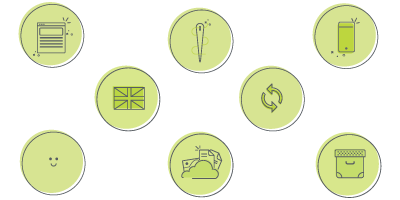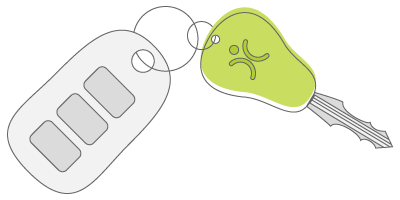CRM Goals and Objectives: How to define and how to achieve
10 Feb 2025
When people start looking for a new CRM system, they will usually have a pain point (or points) they want to address and/or a series of goals they want to achieve.
Pain points refer to those areas of your business that aren’t working as well or as smoothly as they could. It could be a bottleneck in the handover from your sales team. Or maybe just a problem of duplicate or messy data. In this article, I’ll be using the term “objective” to refer to tackling these pain points.
Conversely, goals refer to outcomes you would like to achieve as a result of implementing and using a CRM system. These could be increased customer satisfaction, revenue, lead conversion, etc. Or maybe something more nebulous, like improved communication or team efficiency.
The importance of CRM goals
From my experience, these goals do not usually drive people to seek out a new CRM system. It tends to be the pain points that get people looking for a new system, and the goals come up as part of the discussion with our team.
The goals tend to develop once people are assured that their pain point objectives can (and have) been solved. These goals start to build when they have that more expanded viewpoint of what is possible within the system.
And, to my mind, that’s where the fun really starts.

What do you get with OpenCRM?
Unrivalled customer support? 2TB of storage per account? Data held in EU? It's the sort of stuff we think you should be able to take for granted, but which you won't necessarily get from our competitors.
find out moreIdentifying your CRM goals
When you are confident that the CRM you are trialling or already using will address your pain point objects, it’s time to move on to identifying the goals you want to achieve through using it.
These goals will be directly tied to which areas of your business will use your CRM system. You will then want to think about how those areas are currently performing in their critical tasks. From there, you will want to decide how much, specifically, you want to improve that.
For example, if you plan on utilising the sales management features, you may want to improve lead conversation rates or see an increase in average value on sales. If your sales team currently converts around 1.5% of Leads, you may set a goal of 2.5% (or even higher). Remember that your goals will evolve as time goes on. That goal of 2.5% may change to one of 4% or down to 2%, depending on how well the team are progressing.
But how do you decide on what your goals should be? Start by looking for SMART goals:
- Specific
- Measurable
- Achievable
- Relevant
- Time-bound
At its most basic level, you want to set goals that will let you measure:
- how well your team is using your CRM system,
- how well that system is meeting your requirements, and
- identify areas that need intervention.
When you have a few goals in mind, communicate them and write them down somewhere. After all, for a goal to be achievable, people need to know about it and be able to remind themselves of it.
Ensuring your goals are addressed in your CRM system
If you are struggling to either identify your goals or figure out how to track progress against them, your first port of call should be your CRM provider.
They are the experts in that system and will be able to help you find the best way to both achieve and measure progress against your goals.
This conversation may take place during the initial sales process or while you are configuring and implementing the system. Take the time to discuss your goals and ensure you understand how they are being addressed in the system. That way, you start using your new CRM system with your goals in mind—right from the get-go.
Alternatively, you may come back to this at some later date, either because you are expanding your use of the system or your business has evolved into a new area. Either way, I recommend discussing these new goals with your account manager (or customer success manager).
This will allow you to discuss your goals with someone who knows your CRM system inside and out. You can pick their brains about the best way to record and manage your processes.
We always say that you should have a CRM that will evolve with your business, not the other way around. And this is the perfect opportunity to do just that.

The bottom line
We've got a simple pricing structure: a per user monthly fee that gives you access to the whole of Open CRM. No restrictions and no hidden fees. See? We told you it was simple.
find out moreMeasuring success against these goals
In addition to having the right features and tools to manage the processes around your goals, you need to be able to measure your progress against them.
So, when speaking with your account, project, or customer success manager, ask them about reporting and other ways to measure this information.
Ideally, you want a way to see progress over time against your goals.
Let’s return to that example of getting your sales team to improve their Lead conversion rates. To measure and track progress against this goal, you would want to have a Report showing Leads created and converted over a specific time. It might be helpful if it shows the values broken down by periods and or users.
If you get this Report sent to you at the end of each month, as well as being able to view it on your Dashboard, you will be reminded to review that specific goal each month.
And if you aren’t making the progress against it as you’d hoped, you can go back to them to ask why. Picking up on potential issues quickly and putting fixes in place to make sure you continue to move in a positive direction.
By regularly reviewing progress against your goals, you can also amend them as your business evolves. You may even find yourself setting completely new ones!

Want to take it for a test ride?
Nothing compares to trying out a piece of kit for yourself. Click to sign up for a free trial and see if OpenCRM has the look and feel (as well as the features and functionality) that you're looking for.
try it outI hope this blog has helped you understand what CRM goals are, why it’s important to set them, and how you can implement and measure progress against them. If you’d like to talk about your own CRM goals, we’d love to hear from you. Why not start chatting using the icon on the bottom right of the screen?